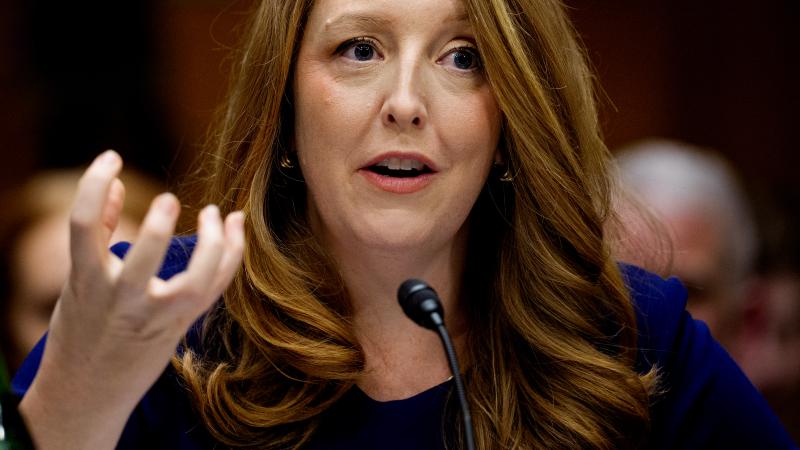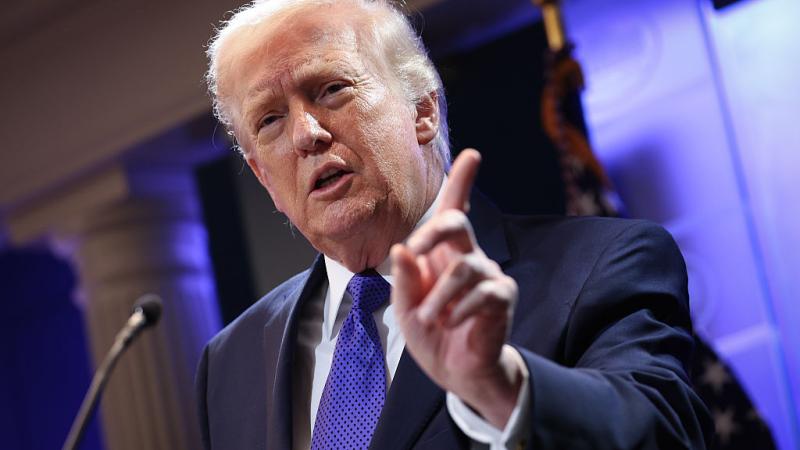House Oversight grills Blinken on funding conservative blacklist ahead of censorship bill markup
Committee Chairman James Comer (R-Ky.) wants State documents and communications about suppression of "mis-, dis-, or mal- information" since Biden inauguration.
The State Department's financial support for organizations that purportedly police disinformation is drawing scrutiny from the new Republican-controlled House.
House Oversight Committee Chairman James Comer (R-Ky.) asked Secretary Antony Blinken for "documents and a staff-level briefing" by March 2 to "understand the scope" of State's funding for "a taxpayer-funded censorship campaign" in a letter Thursday.
The Kentucky Republican cited the Washington Examiner series "Disinformation Inc.," which confirmed the British nonprofit Global Disinformation Index had received $330,000 from the National Endowment for Democracy, almost entirely funded by State, and the now "retired" Disinfo Cloud platform sponsored by State's Global Engagement Center.
The Examiner series reported that GDI blacklisted conservative- and libertarian-leaning U.S. news organizations with advertisers, including Microsoft's Xandr ad exchange, while ranking left-leaning outlets as reputable — even those that promoted the Hunter Biden laptop "Russian disinformation" hoax. George Washington University law professor Jonathan Turley called it a "knockoff" of China's social credit system.
NED responded to Examiner coverage by pledging to stop funding GDI, which is also funded by progressive megadonor George Soros, to "avoid the perception that NED is engaged in any work domestically."
A committee spokesperson declined to specify any other State funding or participation that concerns Comer but pointed to its scheduled Tuesday markup of two bills related to government-tinged censorship.
H.R. 140 would expand the Hatch Act by prohibiting federal employees from "using their authority to influence or coerce a private sector platform ... to remove, suppress, restrict, or add disclaimers or alerts to any lawful speech."
A bill to be introduced would require the government to report "every instance" of federal agencies communicating with private entities for that purpose over the past five years, naming the employees, platforms and "justification of the action."
The bill could doom the Global Engagement Center's participation in the Department of Homeland Security-blessed Election Integrity Partnership, a private consortium that mass-reports what it considers election misinformation to tech platforms. EIP had a self-reported 35% rate of removal, labeling or soft-blocking in 2020.
GEC also funded Internet games that claim to teach players how to spot and discount misinformation, including populist narratives, based on a theory that applies vaccination to media literacy. Blinken told diplomatic and consular posts to promote the games with local leaders.
"The purpose of these [GDI] risk ratings is to pressure advertisers into pulling their ads from these websites, defunding those who would dare to host content or opinions deemed objectionable by GDI, and, apparently, the Department and affiliated organizations," Comer's letter to Blinken says.
The chairman objects to federal efforts such as DHS' formally scuttled Disinformation Governance Board, led by Russia hoax promoter Nina Jankowicz, and "labeling dissenting opinions as threats to critical infrastructure," referring to Comer's prior letter to DHS Secretary Alejandro Mayorkas about the Cybersecurity and Infrastructure Agency's role in the EIP.
Jankowicz is also a target of House Judiciary Committee Chairman Jim Jordan (R-Ohio). He sought her testimony along with that of several Biden administration officials and allies in a flurry of letters last month that warned a "compulsory process" would soon follow to probe the politicization of federal agencies.
Comer asked Blinken to provide all documents and communications regarding direct or indirect grants and funding "used to suppress so-called mis-, dis-, or mal- information" from within the U.S. since President Biden's inauguration, including the GDI funding.
Documents and communications between State employees, contractors, grantees and others related to this suppression, as well as their identities, should also be turned over, Comer said.
"As a general matter, we do not comment on Congressional correspondence," a State Department spokesperson told Just the News, ignoring queries about whether the agency has changed its mind about funding misinformation efforts and what tangible benefit it provides versus the risk of censorship. GDI didn't respond.
The Facts Inside Our Reporter's Notebook
Videos
Links
- James Comer asked Secretary Antony Blinken
- British nonprofit Global Disinformation Index had received $330,000
- "retired" Disinfo Cloud platform
- Jonathan Turley called it a "knockoff" of China's social credit system
- NED responded to Examiner coverage
- scheduled Tuesday markup
- HR-140
- Election Integrity Partnership
- mass-reports what it considers election misinformation to tech platforms
- how to spot and disavow misinformation including populist narratives
- Comer's prior letter to DHS Secretary Alejandro Mayorkas
- He sought her testimony














